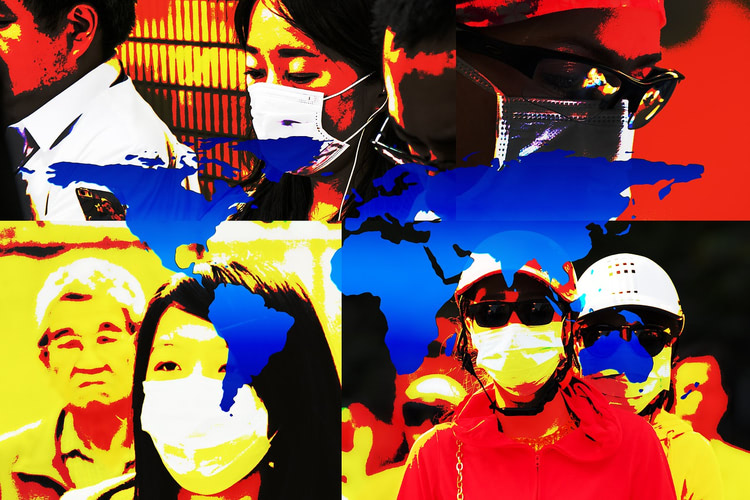The course is designed for front-line clinicians, healthcare workers and professionals tackling the large volume of patients in the current COVID-19 pandemic within the UK primary care sector. Led by experts at St George’s, University of London, learners will explore the epidemiology, clinical symptoms and signs, and current management of COVID-19, and follow the evolving situation in the UK. Participants will also learn how to complete a safe assessment of suspected COVID-19 cases and discover the best protocol to protect themselves and others going forward.
The course will run for two weeks, requiring about two hours of study per week, and has already gathered a community of learners from a wide variety of backgrounds in the global healthcare sector who hope to share their experiences and best practice in order to support each other.
On the welcome page of the course, we asked learners to share their backgrounds and why they’ve joined the course. We found that a number of retired NHS staff who have been asked to return to work in order to help combat the spread of the virus are looking to gather as much information on COVID-19 as possible. Here’s what some of them said:
Colin Waldock, a learner on the course, said: “As a First Contact Practitioner, I am looking to upskill my knowledge in order to be of use to the NHS during this testing time.” Stephen Wyatt, another learner on the course, also commented, “I’m a Clinical Research Nurse from England and I will soon be redeployed to carry out COVID-19 clinical trials in the UK. This course will be of great use to my colleagues and I.”
While the course is based around guidance by UK public health bodies, its content remains relevant to healthcare practitioners around the globe. Several professionals from around the world have already joined the course, with the top ten countries including the UK, Bangladesh, India, Pakistan, Nigeria, Egypt, the US, Australia, Nepal and Iraq. Here are some comments from some international learners:
Alexandra Hejazi, a physiotherapist from Montreal, Canada, and a learner on the course commented, “I’m hoping to gain a more in-depth knowledge about COVID-19 and our role as healthcare professionals in supporting patients safely at a time when things are rapidly changing.” Robert Levit, a first responder to the pandemic, based in New York, US, also joined the course, commenting, “I have completed the first COVID-19 course,
COVID-19: Tackling the Novel Coronavirus from the London School of Hygiene & Tropical Medicine, and found it quite helpful. My objective for this course is to add to my knowledge to continue to be of help to those I can.”
Dr Mohammad Razai, academic clinical fellow in primary care at St George’s, University of London, said: “With a huge amount of information coming in every day with news and advice about COVID-19, it can be difficult to make sense of the information relevant for frontline clinical practice. For this course we will take participants through the most useful and up-to-date research and guidance.
“By the end of the programme, we are hopeful that participants will have received a concise, practical and where possible, evidence-based approach to dealing with COVID-19 in primary care.”
Helen Fuller, Global Healthcare Lead at FutureLearn, said: “Supporting those working within the NHS, and indeed healthcare workers across the world, at this difficult and testing time is imperative. As part of FutureLearn’s response to the crisis, we are working with our expert partners to ensure healthcare professionals have the necessary information and guidance they need to best treat patients whilst reducing the risks to themselves.”


Responses